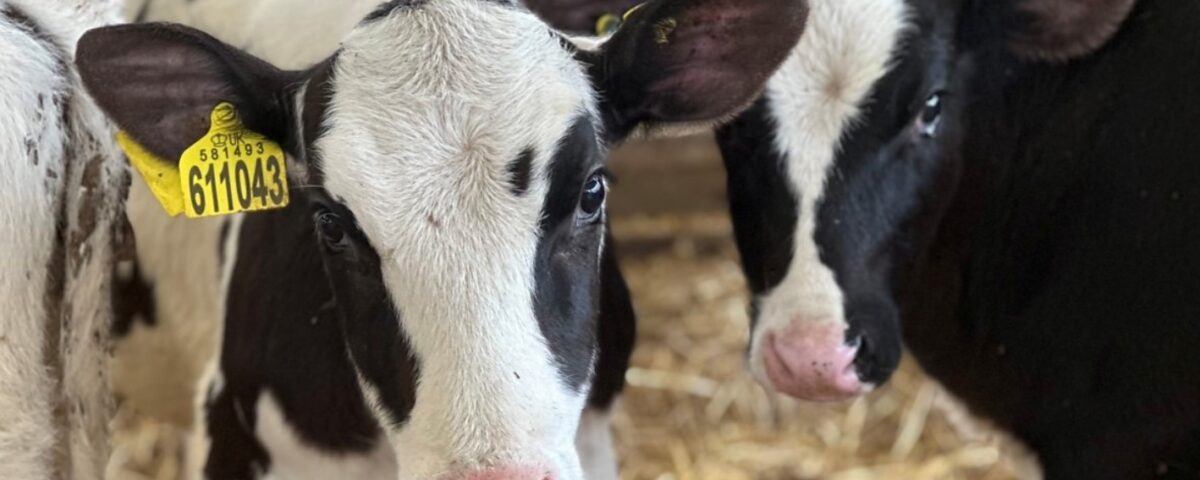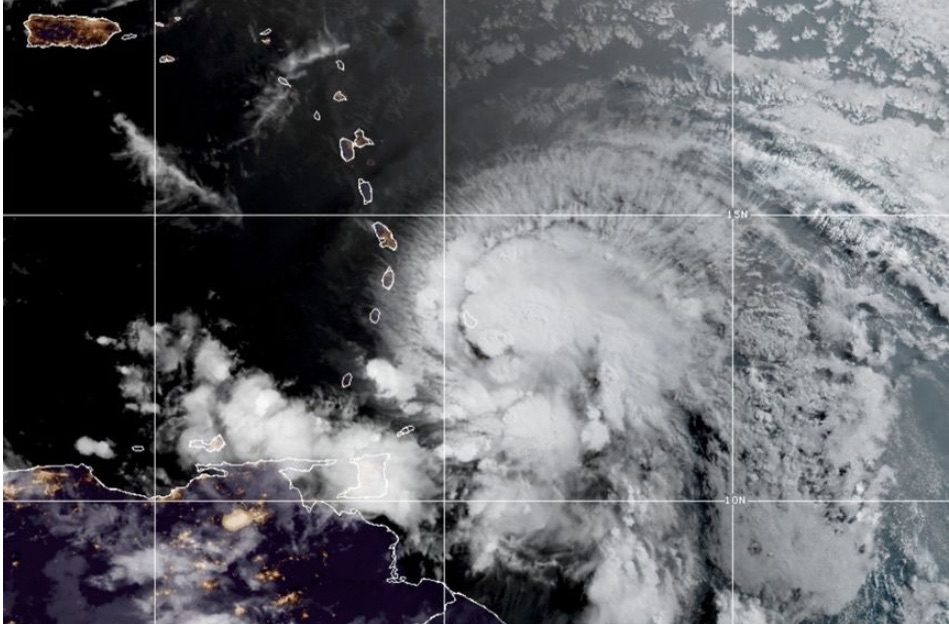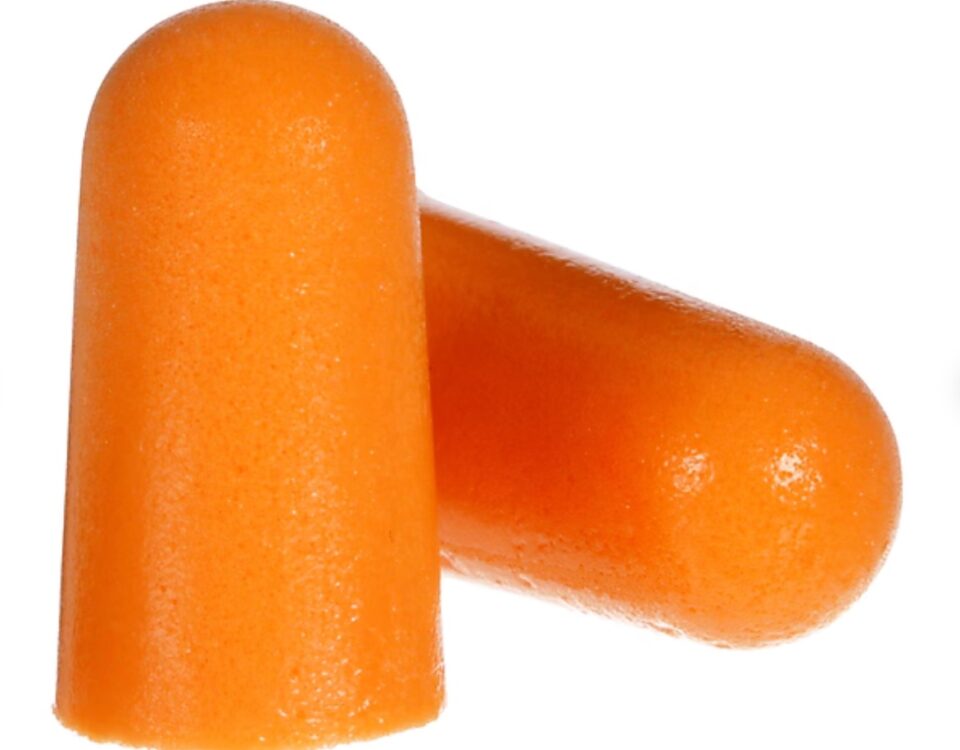
How Coffee Tariffs Affect the Coffee Belt
August 19, 2025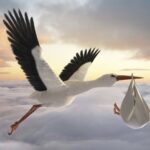
The (Whopping) Cost of Raising a child
August 21, 2025Methane emissions are trending upwards:
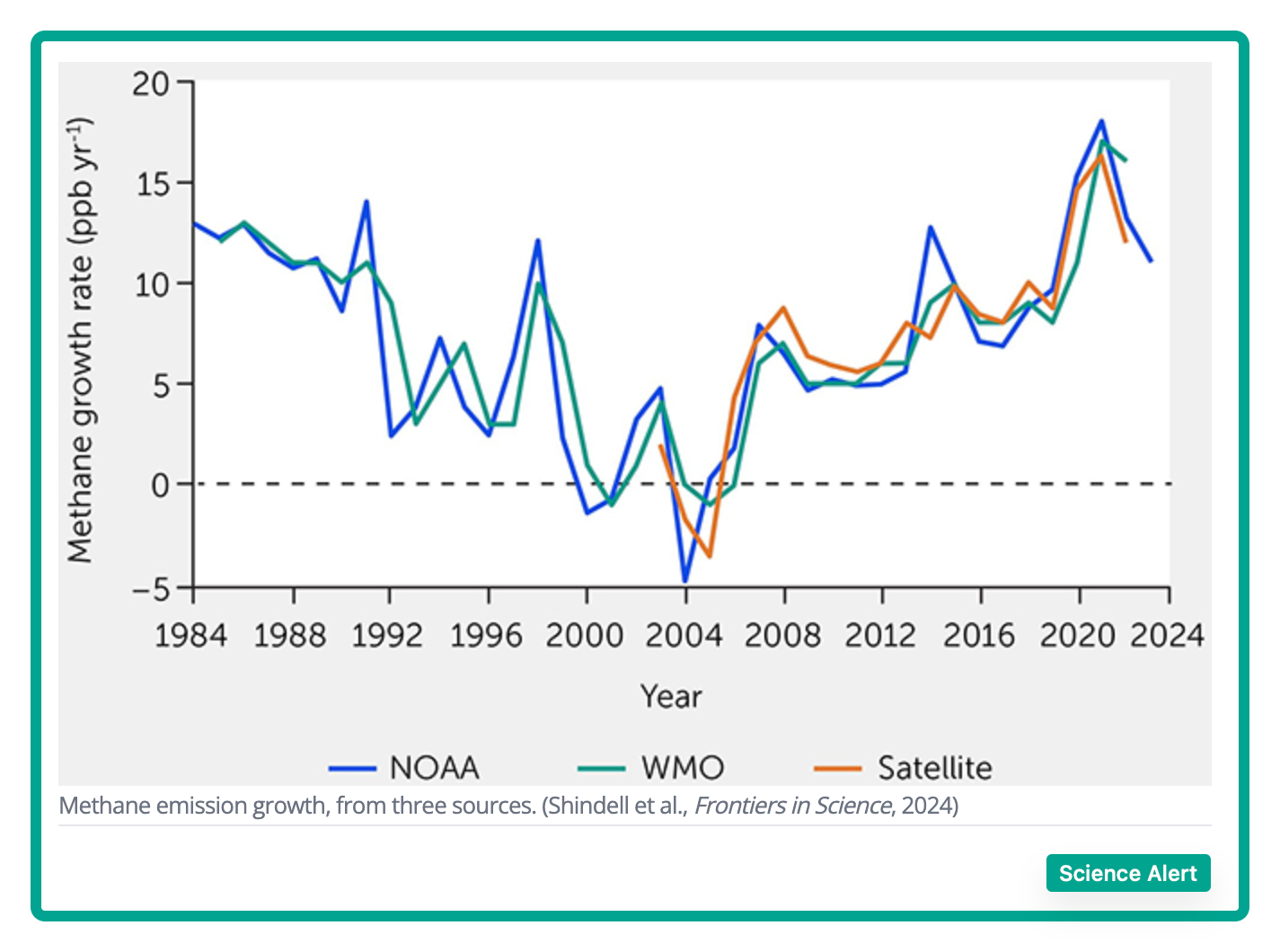
Because methane is much more potent than CO2, we can be especially concerned with cow burps.
Cow Burps
At an estimated burp a minute (or perhaps every 90 seconds), cows propel methane into the air.
This is how:
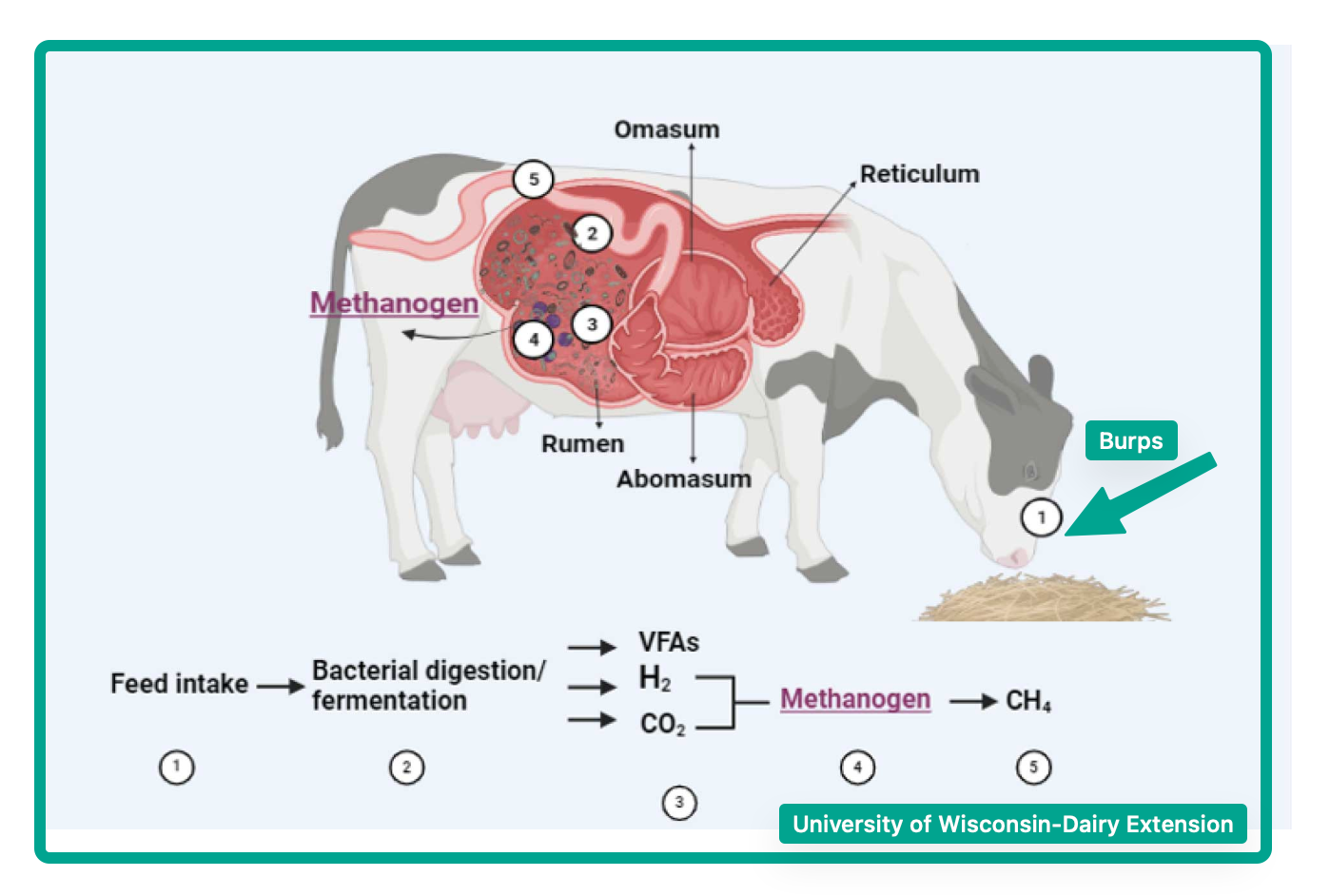
But there are several ways to reduce the gases that cows produce.
Breeding Methane-efficiency
One of the cows in our featured image, Hilda emits less methane when she burps. Through the Cool Cow project, researchers in Scotland used IVF to produce Hilda as a methane-efficient cow. By repeating the process, scientists hope to wind up with increasingly larger generations of environmentally friendly animals.
A Burp Tax
Denmark will use a burp tax to reduce its methane emissions. Because its pigs and cows far outnumber the people that live there, Denmark will start to tax cow burp methane during 2030. The downside for farmers is the 300 Danish kroner per ton tax (approximately $43) that will more than double in 2035. However, making farmers happier, the plan also includes a 60 percent tax rebate.
Like me, you might wonder how to measure methane burps. Searching for possibilities, I discovered these (rather daunting) alternatives:
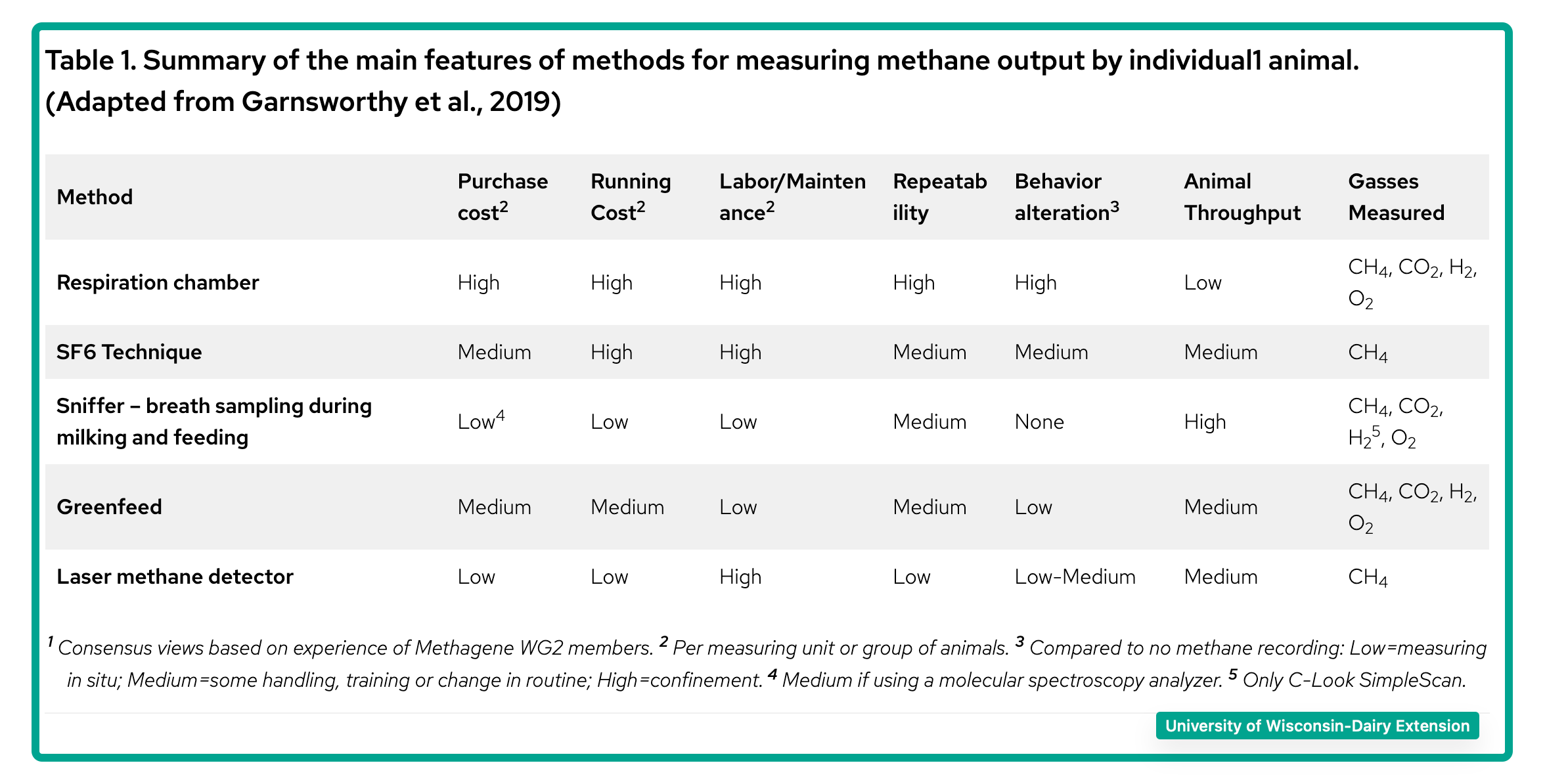
Methane Reduction Masks
The solution might come from the mask that agricultural multinational, Cargill, can sell to European dairy farmers. The device is positioned above a cow’s mouth. Equipped with fans and solar powered batteries, it sucks up burps and then converts the methane to CO2.
Below, a cow is wearing its mask:

This three-minute description of the mask is actually rather interesting:
Our Bottom Line: Tragedy of the Commons
The tragedy of the commons can help to explain methane emissions. Whether it’s polluted streams, messy office refrigerators, or cow burps, we have the incentive to abuse publicly shared resources.
The reason?
When we individually benefit from our behavior, we tend to ignore the impact of everyone using the resource together.
My sources and more: Making my daily walk more interesting, this BBC Business Daily podcast described Denmark’s burp tax. From there, here and here, the University of Wisconsin told me more than I could ever want to know about cows. Then, this Oklahoma Farm Report introduced Hilda while Bloomberg had the cow mask article. And finally, do take a look at our post on sheep burps.
Please note that several of today’s sentences came from a past econlife.
![econlifelogotrademarkedwebsitelogo[1]](/wp-content/uploads/2024/05/econlifelogotrademarkedwebsitelogo1.png#100878)

